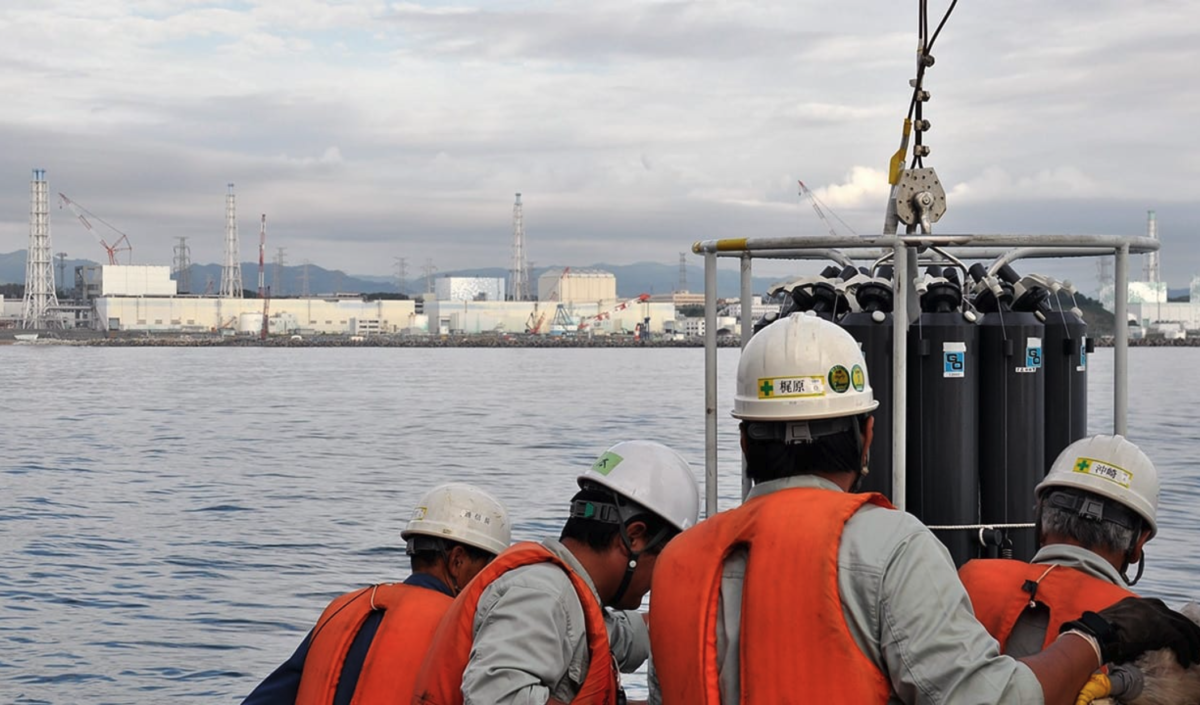
Workers in Japan have started releasing treated radioactive water from the Fukushima Daiichi nuclear power plant into the Pacific Ocean: NAJ screen shot
Special Report –
By Valentina Francis –
LOS ANGELES, Calif. — In a pivotal move that has ignited international debate, workers in Japan have commenced the release of treated radioactive water from the crippled Fukushima Daiichi nuclear power plant into the vast expanse of the Pacific Ocean. This decision, stemming from the aftermath of the 2011 Tohoku earthquake and the subsequent tsunami that devastated the plant, has raised significant concerns both domestically and among nations worldwide.
The Fukushima Daiichi plant, ravaged by the natural disasters, witnessed several reactor meltdowns, prompting a desperate measure: flooding the reactors with water, which over time became heavily contaminated. In a bid to tackle this formidable challenge, the Japanese government has strived to develop a filtration system, the Advanced Liquid Processing System (ALPS), which has proven effective in removing several hazardous radioactive elements from the water, such as cesium-137 and strontium-90.
Yet, a vexing obstacle remains. The radioactive isotope tritium, an inescapable component of water molecules, has eluded efforts at removal. Consequently, experts have raised a chorus of concerns regarding the eventual release of tritium-laden water into the marine environment. The Japanese government, defending its position, insists that the gradual dilution of the water with seawater will bring tritium levels far below safety limits, ultimately releasing the water over decades.
However, divergent viewpoints on the safety of this process persist. Ken Buesseler, a senior scientist at the Woods Hole Oceanographic Institution, suggests that alternative options might have been more prudent, such as confining the contaminated water on land to facilitate easier monitoring. Buesseler acknowledges the potential minimal direct health impacts but emphasizes the buildup of non-tritium contaminants near the shore, which could spell long-term trouble for local fisheries.
A report by Greenpeace adds to the concerns, highlighting that the radioactive water also contains carbon-14, a significant contributor to human radiation exposure and genetic damage. Shaun Burnie, an expert with Greenpeace, contends that the cumulative radioactivity remains hazardous for millennia, warranting a reevaluation of the current plan.
International responses to Japan’s decision have been swift and skeptical. Public protests have emerged in South Korea, and China has imposed a suspension on aquatic imports from Japan, including seafood. The Pacific Islands Forum, comprising nations like the Marshall Islands and Tahiti, express shared apprehension due to their historical exposure to nuclear fallout from atmospheric tests during the Cold War.
The North Pacific’s dynamic currents and migratory patterns mean that the potential effects of the Fukushima water release could be far-reaching, with repercussions extending to the pristine waters near the coastlines of Alaska and California. These areas are renowned for their rich biodiversity and their contribution to the global seafood market. The Pacific salmon run, which is a vital resource for both subsistence and commercial fishing in Alaska, could be especially vulnerable to any ecological disturbances caused by the release.
While the Japanese government maintains that its plan aligns with international safety standards, a lingering unease permeates global conversations about the impending release. The complexity of the matter, combined with the intricacies of marine ecosystems and the inherent interconnectedness of nations, underscores the imperative for a comprehensive assessment that transcends borders and safeguards both the environment and human well-being. As the tritium-laden waters begin their gradual journey into the Pacific, the world watches intently, cognizant of the delicate balance between progress and preservation.
What do you think? Feel free to make comments.
—
Valentina Francis is a free-lance writer living in Los Angeles. Follow her on Facebook here.
___
If you support truth in reporting with no paywall, and fearless writing with no popup ads or sponsored content, consider making a contribution today with GoFundMe or Patreon or PayPal. We just tell it like it is, no sensational clickbait or pretentious BS.














With all of the broken oil pipelines in the ocean, we are going to pass judgment on Japan trying to fix a nuclear fallout? I don’t think Japan has a choice on where to put the waste. No other country is offering to help the cleanup. Step it up …humanity!